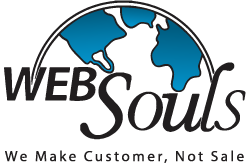Does your website get stuck in the middle of loading a page? Or do you get frustrated by having to wait forever before your website loads?
Slow websites can be frustrating and are bad for SEO. They also cause Google to downgrade your site, and you will struggle with a high bounce rate. You'll also end up spending more on ads and getting subpar results.
Usually, if you have the best business web hosting in the UK, you shouldn't have any problems with site speed. However, other factors may affect your website's loading speed, including whether you’ve added heavy plugins or whether the site has videos and large images, amongst other factors.
So, what are the causes of slow-loading sites, and how can you resolve them? Read on to find out!

Common Causes of Slow Websites
Most websites that experience slow loading speeds will struggle with the same issues. Take care of the basics like designing your site according to the latest requirements or getting the best business web hosting in the UK. You shouldn't have an issue with poor loading speed.
Here are eight common causes of slow websites:
1. Slow Servers
In most cases, your website’s slowness isn’t because of a development issue or because it has too much content. It’s usually slow servers that cause your website to load slowly. Servers are the space where the website’s data is hosted.
Whenever an internet user clicks on a link, it will route to the server, which will then complete the request. However, if the server is low-quality, it will take time to complete the request.
This is why you should always choose your hosting plan carefully. The best business web hosting in the UK will have fast servers that run on the latest SSD technology, allowing your website to run faster and smoother.
So, instead of choosing cheaper shared hosting plans that don’t have enough space for a business website, switch to the best business web hosting in the UK instead!
2. Outdated Website Design
If buying a dedicated server hosting plan or VPS Hosting is outside your budget, then you’ll have to improve your website efficiency instead. If you have a lot of visitors that are slowing your website down, the best solution is to go for dedicated hosting.
Otherwise, you should improve your website design. Outdated coding is often heavier than modern web design templates and could be the reason for your site's slowness. Invest in a website redesign, and you'll be able to host your website on a more affordable business web hosting plan.
3. Large Images Or Videos
If your website has a limited amount of hosting space and you’ve added videos or large image files to it, then you should expect slow speeds. But what if you need to have the image and video files on your website?
In this case, change how you save the image files by reducing the size. If you have images saved in BMP or TIFF, then change them to JPG or PNG before uploading them.
The trick to reducing the video load on your website is to upload them to YouTube first and then embed the video on your website. This allows the videos to play on YouTube's servers, and you'll save a lot of crucial space.
However, if you have to have large videos or images on your website, then make sure you choose the best business web hosting in the UK for enough server space to keep them.
4. Unnecessary Plugins
If your website is too slow, then have your developer recheck the plugins. Unnecessary plugins will slow your website down, causing your customers to get frustrated. If you have too many plugins, look at which ones are necessary and get rid of the rest.
You can even check for plugin updates, especially if you’ve developed your site on WordPress. Some updates may have a single plugin to replace several smaller ones, which will free up space on your site and give it a much-needed boost.
5. Uncompressed Files
Compression is a great way to reduce the size of files and images on your website and can be used to improve your website's speed. Run a compression audit to see whether the files are compressed to see how much space you can free up. You can then compress any large files to make your site run smoother.
6. Your CMS Isn’t Updated
When was the last time you updated your WordPress or Wix? If you haven't done this in a while, it may affect your website speed. CMS providers often give regular updates that help fix security patches and technical glitches.
Update your CMS regularly to ensure your website functions optimally.

7. Security Problems
If your website's been compromised, it may negatively affect the overall site performance. Hackers may install malware on your site, which may cause it to slow down. This is why it's essential to have the right security features on your site, including a proper SSL certificate.
The best business web hosting in the UK will provide you with proper server security for your site, even if you’re using shared hosting. However, if you want your site to have better protection, then host it with dedicated server hosting.
8. Too Much Website Traffic
Even though your website may have enough space, if too many people access it at once, it will experience slowness. While a lot of traffic is usually a good thing, you should ensure your website is prepared to handle the extra traffic.
A good hosting plan with enough bandwidth and RAM can handle hundreds to thousands of visitors at once. If you're experiencing a surge in website traffic, then make sure you have enough RAM on your server to handle it.
Lastly, remember that many of these issues can be resolved by getting the best plans for business web hosting in the UK.
22 Feb 2022
 GBP (£)
GBP (£)
 USD ($)
USD ($)







